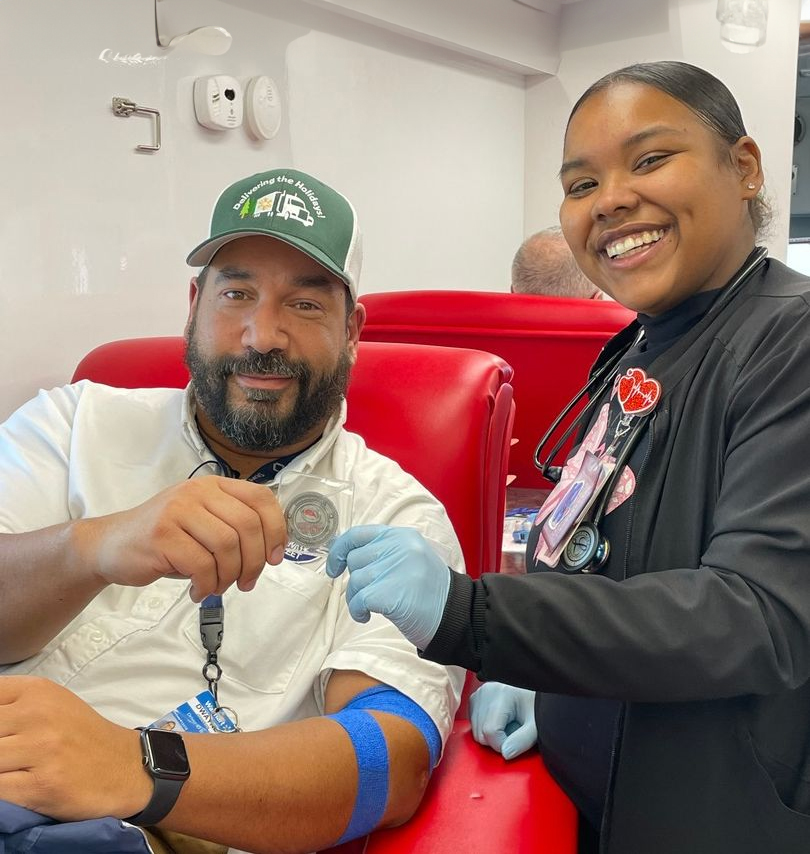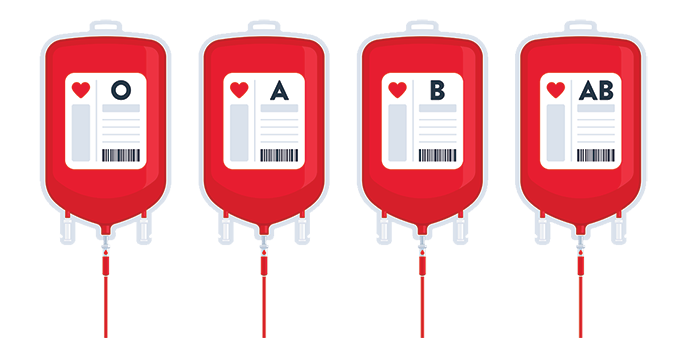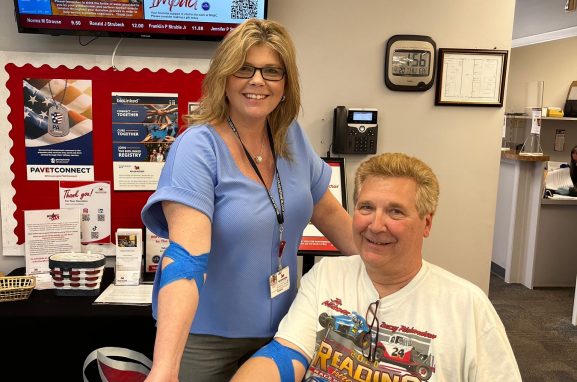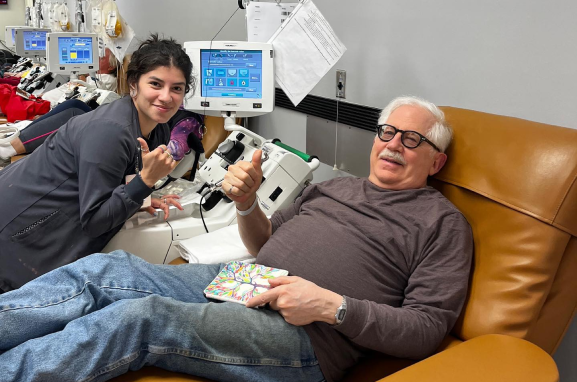
Over 100 years ago, it was discovered that people have different types of blood. Even though all blood consists of the same basic elements, not all blood is alike. The four main ABO blood types are O, A, B, and AB. Each is paired with a + or – Rh factor, which is determined by the presence or absence of substances that can trigger immune responses if they are foreign to the body. These substances are called antigens. Safe blood transfusions depend on careful blood typing and cross-matching. Click your type below to learn more about it.

|
Type
|
You can give blood to
|
You can receive blood from
|
|---|---|---|
|
A+ >
|
A+, AB+
|
A+, A-, O+, O-
|
|
O+ >
|
O+, A+, B+, AB+
|
O+, O-
|
|
B+ >
|
B+, AB+
|
B+, B-, O+, O-
|
|
AB+ >
|
AB+
|
Everyone
|
|
A- >
|
A+, A-, AB+, AB-
|
A-, O-
|
|
O- >
|
Everyone
|
O-
|
|
B- >
|
B+, B-, AB+, AB-
|
B-, O-
|
|
AB- >
|
AB+, AB-
|
AB-, A-, B-, O-
|
As you can see, some types mix, while others don’t, but each type is important for saving lives. Miller-Keystone Blood Center often runs short of types O and B blood and AB plasma. However, blood shortages occur during the summer and winter holidays. If all eligible donors gave at least twice a year, it would help prevent blood shortages.
There are more than 600 known antigens besides A and B. Certain blood types are unique to specific racial and ethnic groups. Therefore, the donor diversity must match the patient diversity. For example, U-negative and Duffy-negative blood types are unique to African Americans. So, sickle cell patients with these blood types must rely on donors with matching blood types within their community.
Different ethnic and racial groups also have different frequencies of the main blood types in their populations. For example, 51 percent of African-Americans and 57 percent of Hispanics are type O. Still, only 45 percent of Caucasians are type O. Type O is routinely in short supply and high demand by hospitals – both because it is the most common blood type and because type O negative blood, in particular, is the universal type needed for emergency transfusions. Minority and diverse populations, therefore, play a critical role in meeting the constant need for blood.

Less than 7% of the population has O- blood, yet it’s universal. O+ is in high demand as the most common type. Platelets last only 7 days. We always need O blood and platelet donors. If you’re in these groups, schedule a donation. Remember, the rarest type is the one not available when needed. All types and platelets are welcome!
Apheresis, or Automated Donation, involves drawing blood from a donor, separating platelets, plasma, or red cells using a cell separator, and returning the remaining components to the donor with saline fluid. The procedure takes 1-2 hours; donors can relax, read, or watch movies. The term ‘aphaeresis’ is derived from the Greek word meaning ‘to take away.

|
Automated Donation Type
|
Optimal Blood types needed
|
Length between donations
|
Donation process time
|
|---|---|---|---|
|
Automated Red Cells
|
O-, O+, B-, A-
|
Every 16 weeks
|
1 to 1.5 hours
|
|
Red Cell + Platelet
|
O-, O+, B-, A-, AB-
|
Every 8 weeks
|
1 to 1.5 hours
|
|
Red Cell + Double Platelet
|
O-, O+, B-, A-, AB-
|
Every 8 weeks
|
1 to 1.5 hours
|
|
Single Platelet
|
All blood types
|
Every 8 days
|
1 hour 20 min
|
|
Double Platelet
|
All blood types
|
Every 8 days
|
1.5 to 2 hours
|
|
Plasma + Platelet
|
AB+, AB-
|
Every 4 weeks
|
1.5 hours
|
©2024 Miller-Keystone Blood Center is an affiliate of Hospital Central Services | Privacy Policy I Terms of Use I Site By: DAY Vision Marketing